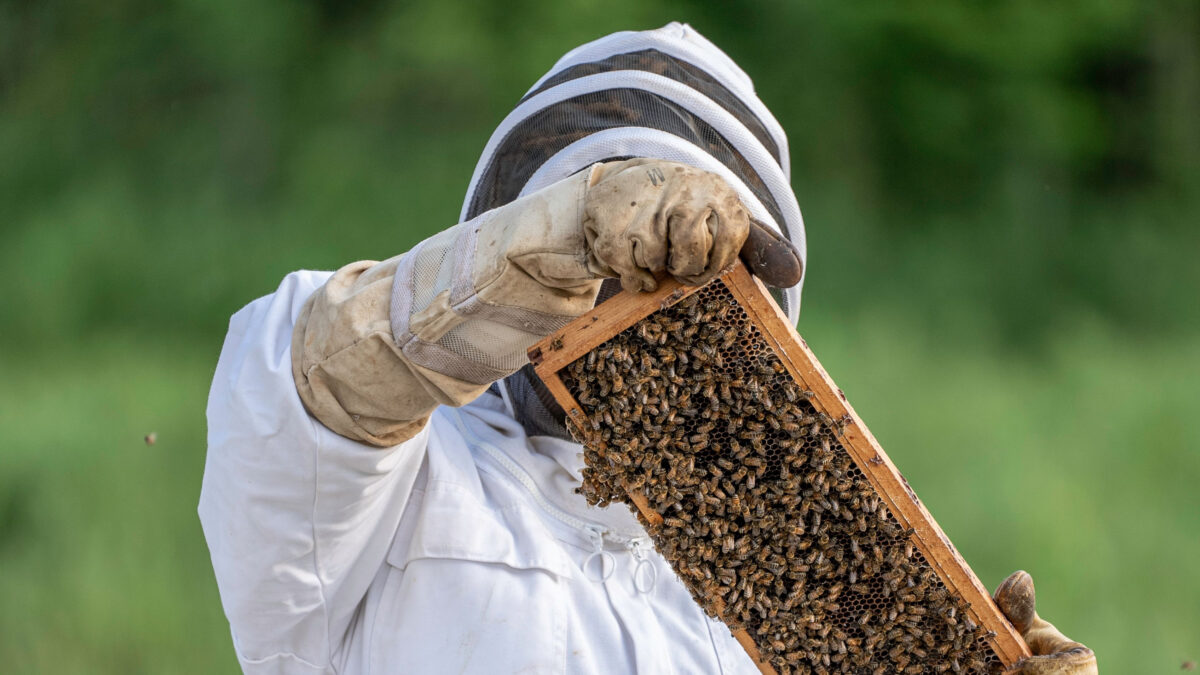Keeping Pollinators Buzzing
TOPICS
Monarch ButterflyZippy Duvall
President

photo credit: North Carolina Farm Bureau, Used With Permission
Zippy Duvall
President
Farming is about life. As we sow the seeds, tend the trees and vines and bring life from the soil, farmers rely on a variety of tools, but we also count on a little help from nature. For example, pollinators like honeybees and butterflies play a critical role in growing many of the crops we rely on to feed our families, neighbors and animals. As a nod of thanks to these little critters and to mark National Pollinator Month this June, I recently sat down with a couple special guests for my Farmside Chat podcast to talk about how farmers are taking steps to ensure nature’s tiniest workers stay healthy.
Iowa Farm Bureau President Craig Hill shared with me the collaboration across industries to promote habitat for the Monarch butterfly in his home state. The Monarch has gotten a lot of attention in recent years as its population has declined. Farmers across the Midwest have been especially invested in finding ways to help the species rebound because this region provides an important breeding ground for the butterflies before they begin their long journey back to their winter home in Mexico.
Agriculture touches everyone and is meant to be shared.
Farmers in Iowa, Illinois and across the Midwest are planting milkweed, the plant the butterfly relies on for food and breeding. As President Hill and I discussed in the podcast, it’s not in a farmer’s nature to plant a weed rather than pluck it, but thanks to research, we have learned that this particular weed doesn’t pose a threat to Midwestern crops.
With increases in urban and suburban development, wildlife often seek refuge on agricultural land when another habitat is lost. Iowa Farm Bureau played a leading role in the Iowa Conservation Consortium, which has provided resources to farmers and other landowners on how they can take steps to increase the Monarch population in their region and give the species a better chance at survival for their long journey south. This is another great example of how farmers are part of the solution when it comes to conservation and how we can accomplish more through voluntary, local initiatives.
Sharing our farm story and getting the next generation engaged in agriculture is also key to successful conservation efforts. My second guest for this pollinator episode of Farmside Chat was Kamal Bell, a farmer and beekeeper from North Carolina. Kamal shared with me the science and planning that goes into caring for bees, including daily checks on hives and monitoring the queen to ensure the colony is healthy.
As a former teacher, Kamal is passionate about ag education and on a mission to get the next generation excited about agriculture through a special STEM program he runs on his farm. He believes education is a key component to keeping our farms sustainable and trains young men from the local high school in farming and beekeeping at Sankofa Farms. Kamal has also opened an AirBnB experience where farm tourists can come and learn about beekeeping firsthand. Kamal’s enthusiasm for farming is contagious, and I cannot wait to see what comes next from him and the young leaders he is cultivating.
Agriculture touches everyone and is meant to be shared. Even a little pollinator like the honeybee doesn’t take on its mighty task alone but relies on community for its health and to do its intended work. Farming is the heart of our communities and our nation, and we must all continue to do our part to keep the industry and the ecosystem we rely on humming.
Zippy Duvall
President
Vincent “Zippy” Duvall, a poultry, cattle and hay producer from Greene County, Georgia, is the 12th president of the American Farm Bureau Federation.